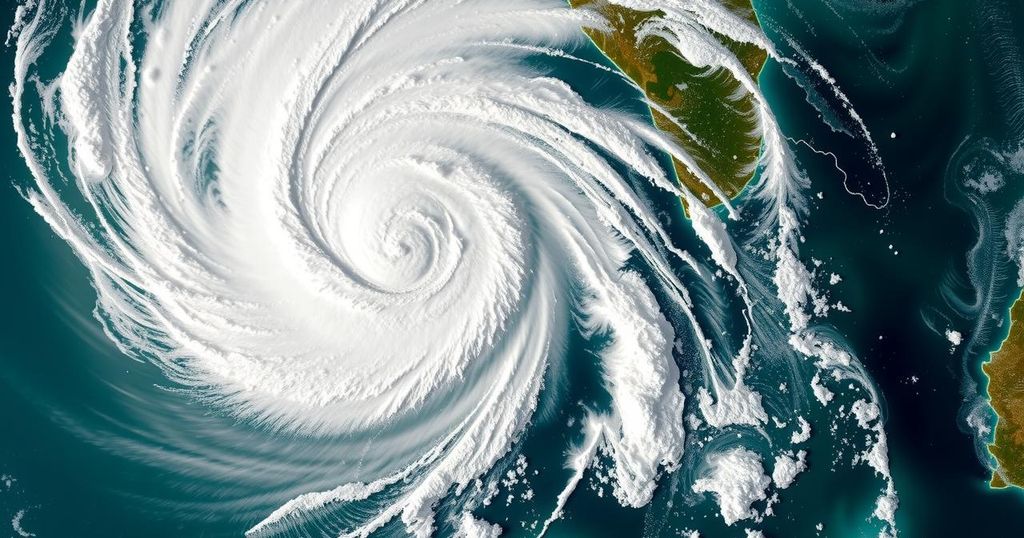WFP Mozambique: Response to Tropical Cyclone Chido – Situation Report
Tropical Cyclone Chido made landfall in Cabo Delgado, Mozambique, on 15 December 2024, affecting approximately 2 million individuals. Immediate response actions are underway, with early warning messages disseminated and emergency food assistance provided to affected families. High-risk districts identified include Mecufi and Chiure in Cabo Delgado, as well as multiple areas in Nampula.
On 15 December 2024, Tropical Cyclone Chido made landfall in the district of Mecufi, Cabo Delgado, impacting approximately 2 million individuals. Among this, 627,000 individuals are classified as being at high risk of the cyclone’s effects, while 1.4 million are regarded as at moderate risk. Government meteorological updates indicate potential impacts on essential infrastructure like river basins, roads, electricity poles, and health facilities, necessitating swift response measures.
The districts most affected by the cyclone include Mecufi, Chiure, Metuge, Pemba, Namuno, Montepuez, and Ancuabe in Cabo Delgado, along with Memba, Nacaroa, and Erati in Nampula province. In preparation for the cyclone, early warnings and voluntary evacuation messaging commenced on 8 December in Nampula and on 12 December in Pemba, successfully reaching over 400,000 individuals in the at-risk areas as part of the Anticipatory Action Plan activation.
Furthermore, the World Food Programme (WFP) has mobilized to provide emergency food assistance to families displaced by the cyclone, delivering aid to around 500 affected families in temporary accommodation centers in Pemba within the first 24 hours following the cyclone’s landfall. Additional support was extended to food distribution in temporary accommodation centers in Mogincual, Nampula, facilitated by INGD and WFP. Comprehensive multi-sectoral assessments are slated for the Mecufi and Chiure districts to evaluate the full extent of the cyclone’s impact.
Cyclones pose a significant threat to coastal regions, particularly in Mozambique, where the geographical and climatic conditions make the country vulnerable to severe weather events. The recent occurrence of Tropical Cyclone Chido highlights the ongoing challenges faced by humanitarian organizations in effectively managing disaster responses. The cyclone’s landfall has raised serious concerns regarding infrastructure resilience and the need for urgent assistance to affected populations. The data on the number of individuals at risk underscores the magnitude of the crisis and the importance of early interventions to mitigate adverse effects.
In summary, Tropical Cyclone Chido has resulted in a significant humanitarian crisis in Mozambique, particularly affecting Cabo Delgado and Nampula provinces. The early warning systems and the swift response by organizations like WFP are crucial in providing immediate assistance to displaced individuals. Ongoing assessments will further inform response efforts as the full impact of the cyclone emerges. Continued vigilance and commitment to disaster preparedness are essential to safeguarding communities in vulnerable areas.
Original Source: reliefweb.int




Post Comment